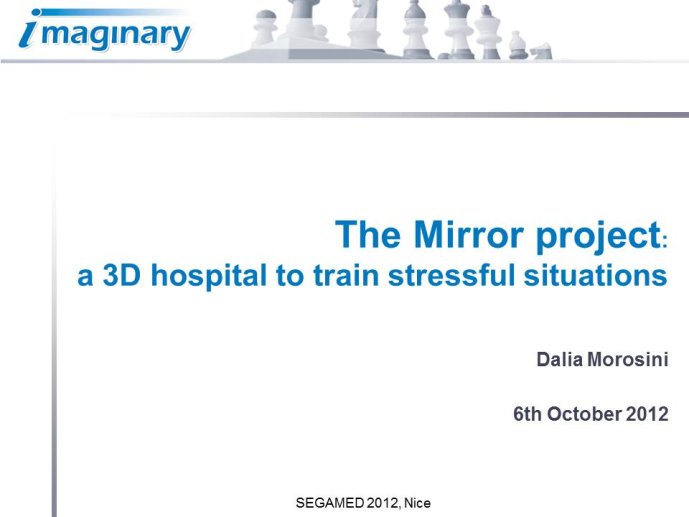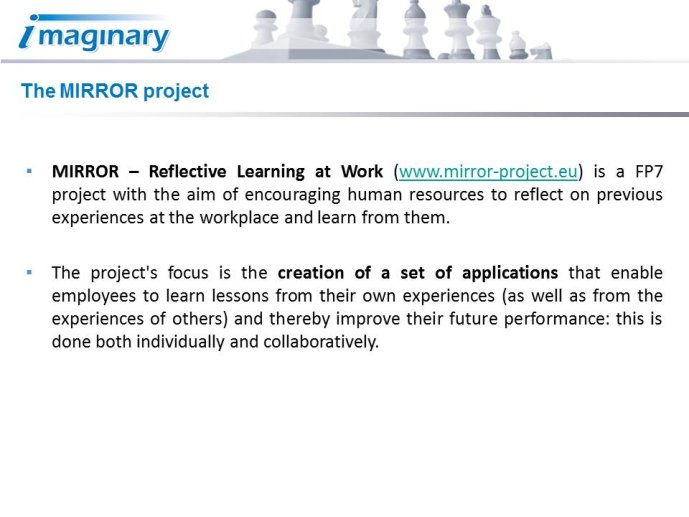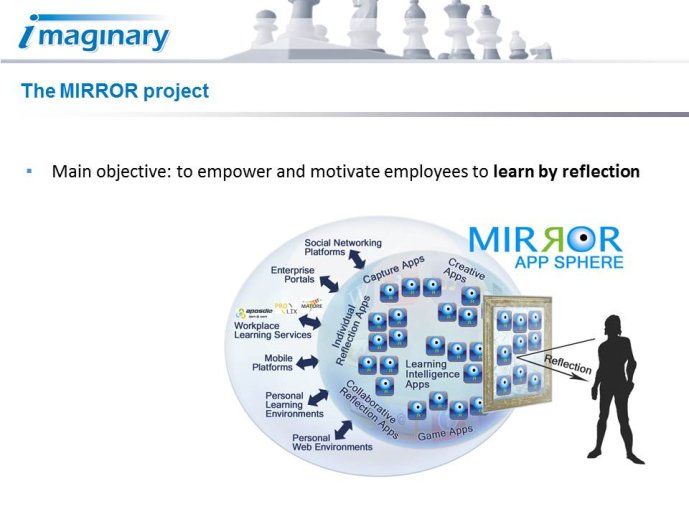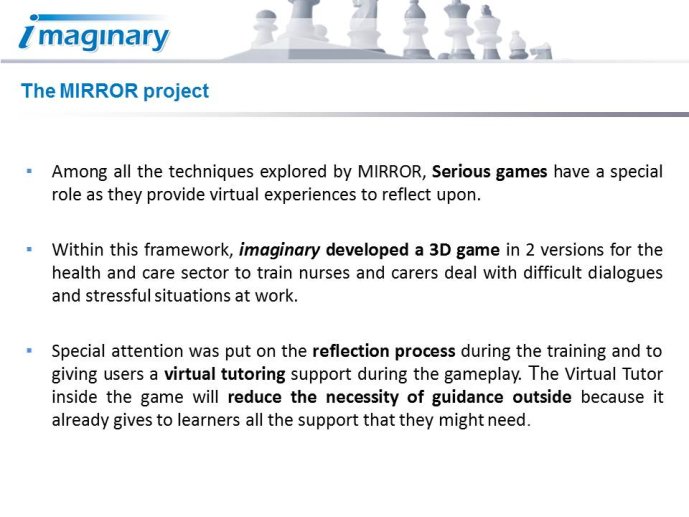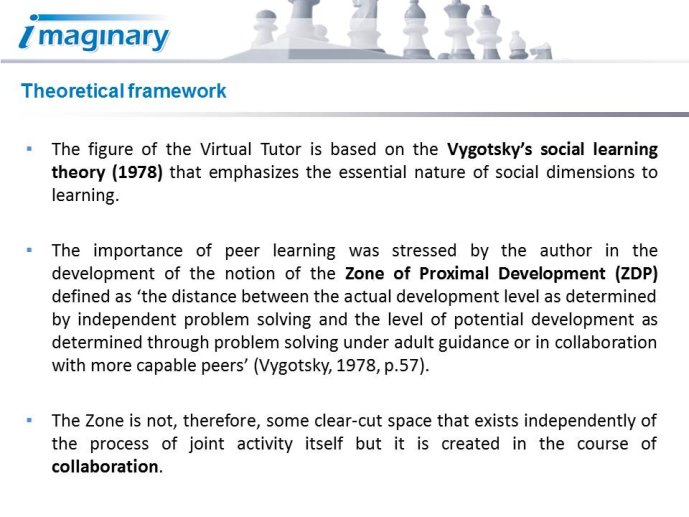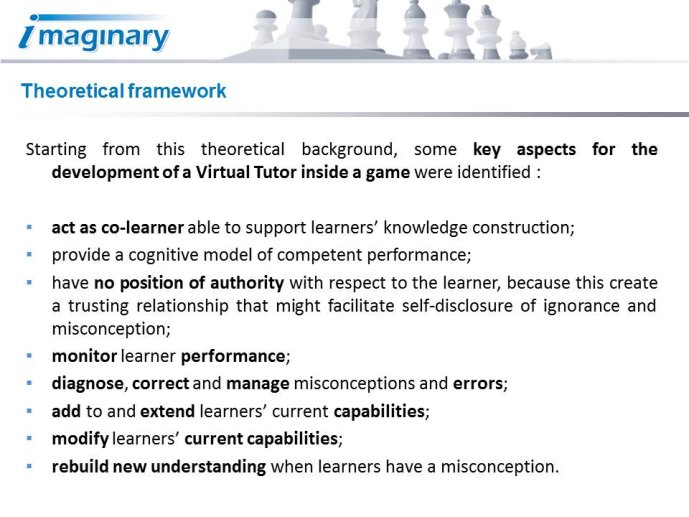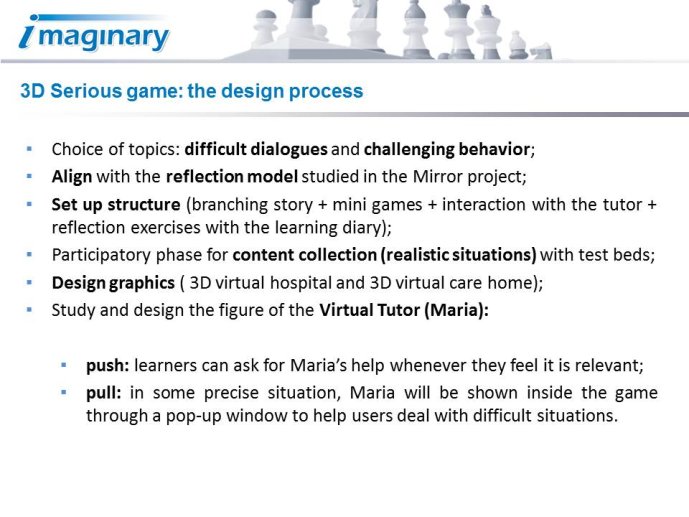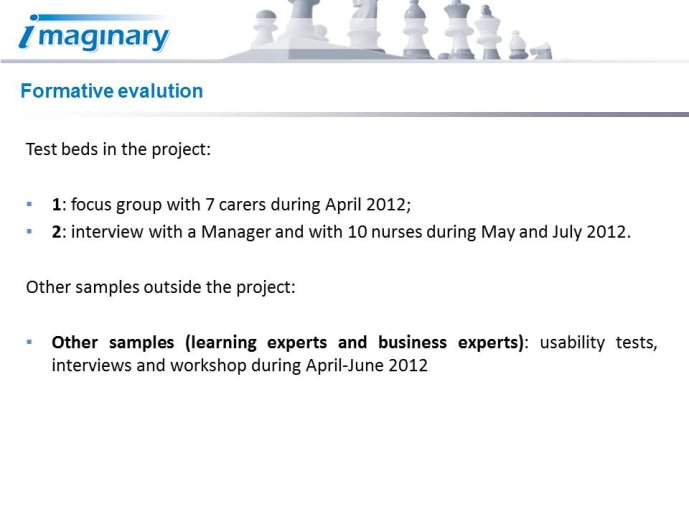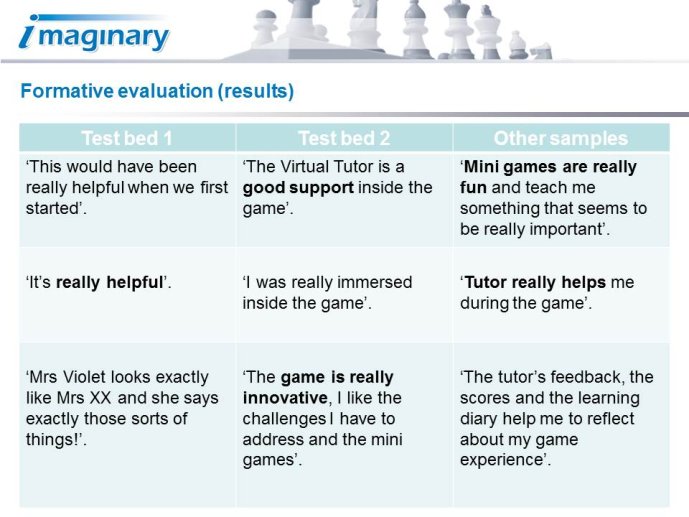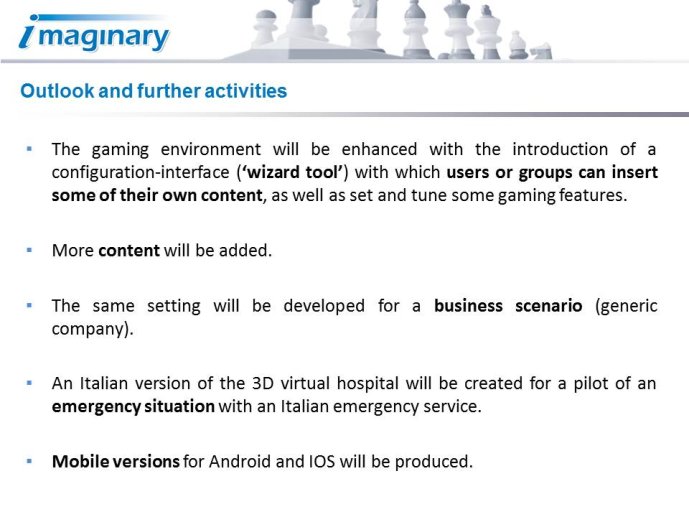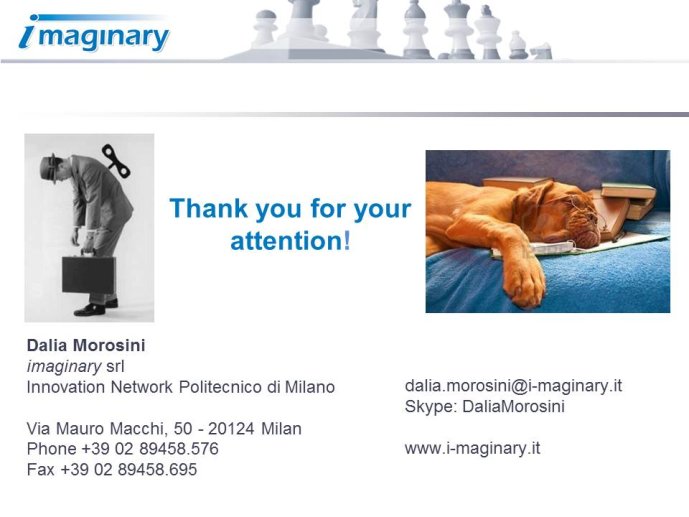Notice
SEGAMED Nice 2012 : The MIRROR project : a 3D hospital to train stressful situations .
- document 1 document 2 document 3
- niveau 1 niveau 2 niveau 3
Descriptif
Titre : SEGAMED Nice 2012 : The MIRROR project : a 3D hospital to train stressful situations Intervenant (s) : Dalia MOROSINI (Imaginary srl, Milan, Italy).
Résumé : “CLinIC - The Virtual Tutor” is a 3D serious game dealing with difficult dialogues and challenging situations developed for the health sector within the “MIRROR* – reflective Learning at Work” project (www.mirror-project.eu). The aim is to help nurses to increase their ability to manage difficult situations that can occur during their daily work. The serious game is set into a 3D virtual hospital developed with the Unity software. Here learners will have the possibility to navigate the environments, deal with some difficult situations with patients and increase some specific competences trough different “mini games”. During the game, users will have to manage at their best different parameters at the same time: time management and patient satisfaction. A central role will be reserved to “Maria”: a valuable and trustable colleague that will be the Virtual Tutor of the user inside the game.
Based on the “peer-to-peer” learning model, Maria will enable learners to enter in their Zone of Proximal Development (Vygotsky, 1978) and extend their own knowledge at the end of the game. In particular the intervention of the Virtual Tutor will occur at different levels:
• Push: learners can ask for the help of Maria whenever they feel it is relevant.
• Pull: at some precise situation Maria will be shown inside the game trough a pop-up to help users deal with difficult situations.
Moreover, at the end of the game Maria will give learners a feedback about their performance during the game with respect to the different parameters described above. Furthermore, in order to help the user develop reflective learning, users can take notes at any time during the game. At the end of the game experience, through a learning diary, learners will be able to read all the notes that have been taken and reflect about this experience.
Through this set of user-centered tools, learners will be able to reflect about their gaming experience and transfer the newly acquired competences from the safe virtual environment to the real world. Finally the Virtual Tutor will reduce the necessity of guidance outside the game because it already gives to learners all the support that they might need.
(*)MIRROR is a FP7 project with the aim of encouraging human resources to reflect on previous experiences at the workplace and learn from them. The project's focus is the creation of a set of applications that enable employees to learn lessons from their own experiences (as well as from the experiences of others) and thereby improve their future performance. Among all the techniques explored by MIRROR, serious games have a special role as they provide virtual experiences to reflect upon.
L’auteur n’a pas transmis de conflit d’intérêt concernant les données diffusées dans cette vidéo ou publiées dans la référence citée.
Conférence enregistrée lors du SEGAMED : 1ère conférence nationale sur l’usage des jeux sérieux les 5 et 6 octobre 2012 à Nice (France).
Réalisation, production : Canal U/3S, CERIMES.
Mots clés : Nice 2012, SEGAMED, jeux sérieux, enseignement, apprentissage, médecine, santé

